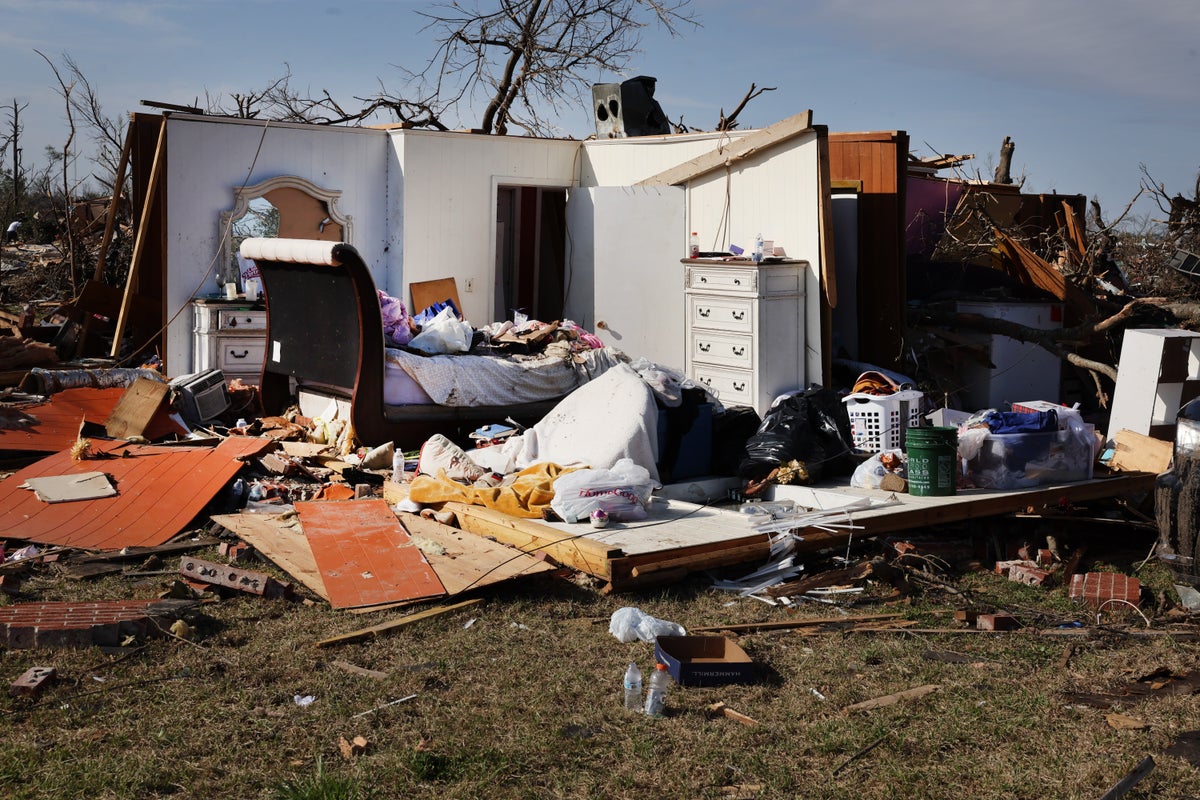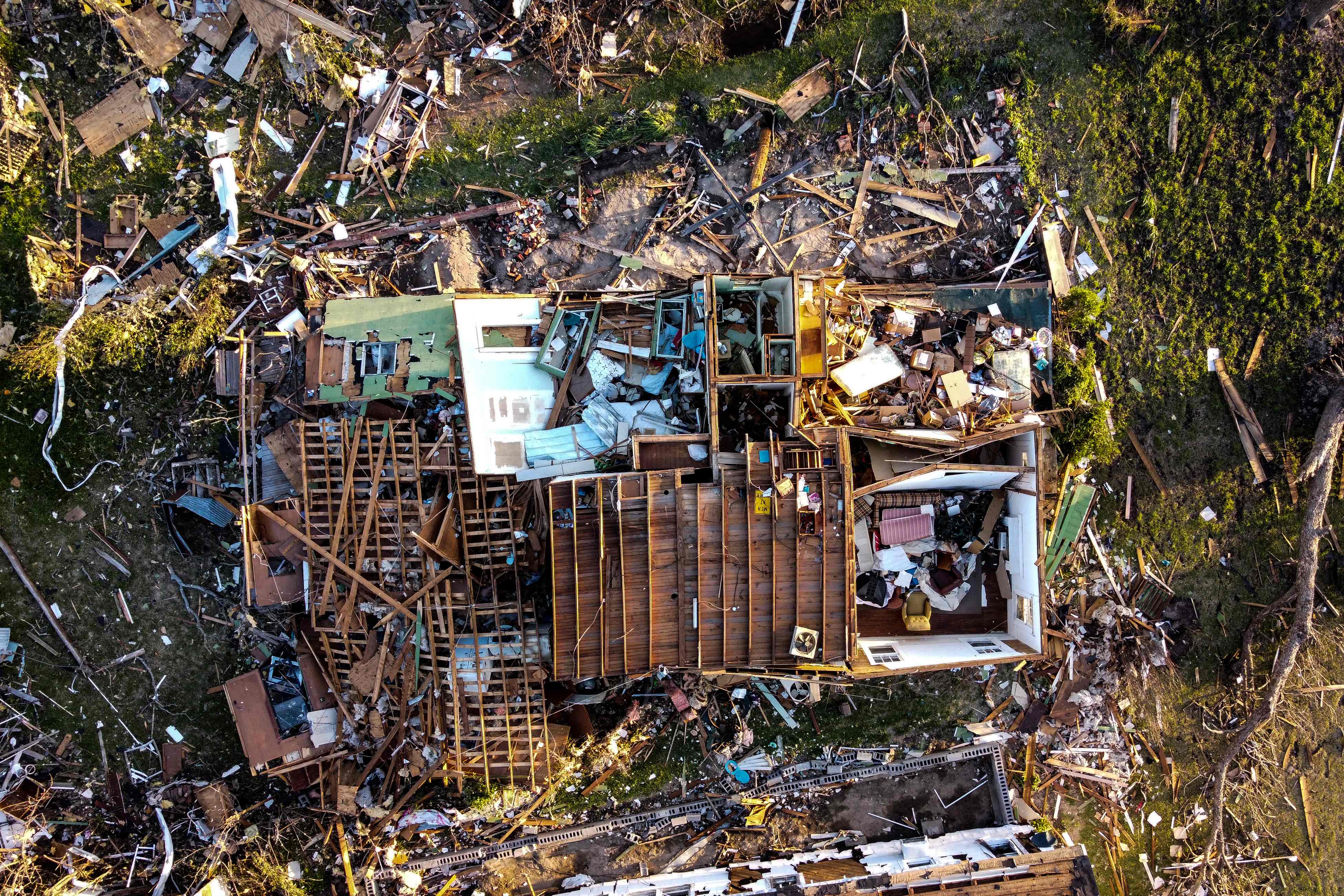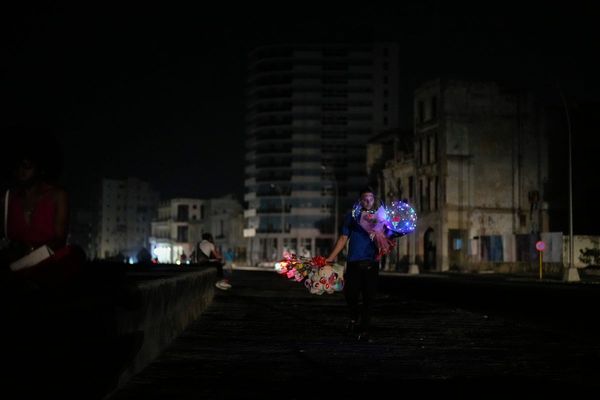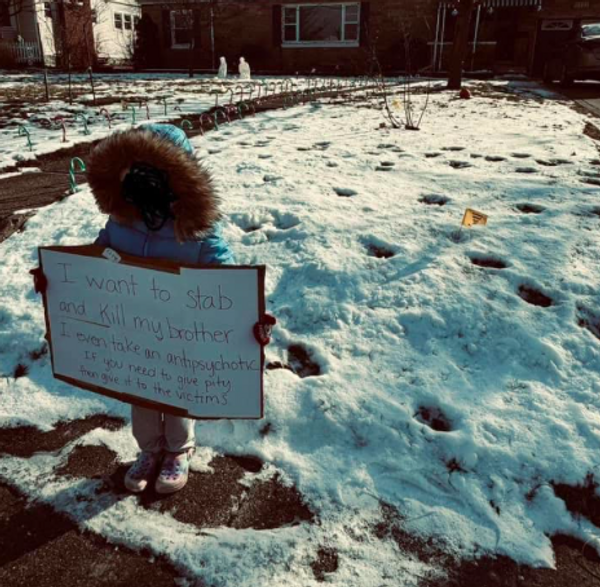
Help began pouring into one of the poorest regions of the United States after a deadly tornado ripped through several towns across a 170-mile stretch of the Mississippi Delta.
At least 26 people were killed and dozens injured as massive storms hit Mississippi and Alabama. Based on early data, the tornado received a preliminary EF-4 rating, with top wind gusts between 166 mph and 200 mph (265 kph and 320 kph), according to the National Weather Service office in Jackson. Officials said the twister was on the ground for more than an hour.
President Joe Biden issued an emergency declaration for Mississippi on Sunday, making federal funding available to hardest hit areas. “Help is on the way,” Mississippi governor Tate Reeves said.
But even as recovery efforts were underway, the National Weather Service warned of a new risk of more severe weather overnight on Sunday including high winds, large hail and possible tornadoes in Georgia, Louisiana, Mississippi and Alabama.
A tornado touched down early on Sunday in Troup County, Georgia, near the Alabama border, according to the Georgia Mutual Aid Group. Affected areas included the county seat of LaGrange, about (108km (67 miles) southwest of Atlanta. About 100 buildings were damaged, with at least 30 uninhabitable, and five people suffered minor injuries, officials said. Many roads, including Interstate Highway 85, were blocked by debris.
Two tigers briefly escaped from their enclosures at Wild Animal Safari in Pine Mountain, Georgia, after the park sustained extensive tornado damage. “Both have now been found, tranquilized, and safely returned to a secure enclosure,” the park said on Facebook. None of its employees or animals were hurt, it said.

Jarrod Kunze drove to the hard-hit Mississippi town of Rolling Fork from his home in Alabama, ready to volunteer “in whatever capacity I’m needed”.
“The town is devastated,” he said. “Everything I can see is in some state of destruction.”
The tornado reduced homes in the town of 2,000 people to piles of rubble and flipped cars on their sides.
“How anybody survived is unknown by me,” said Rodney Porter, who lives 20 miles south. “Houses are gone, houses stacked on top of houses with vehicles on top of that.”







